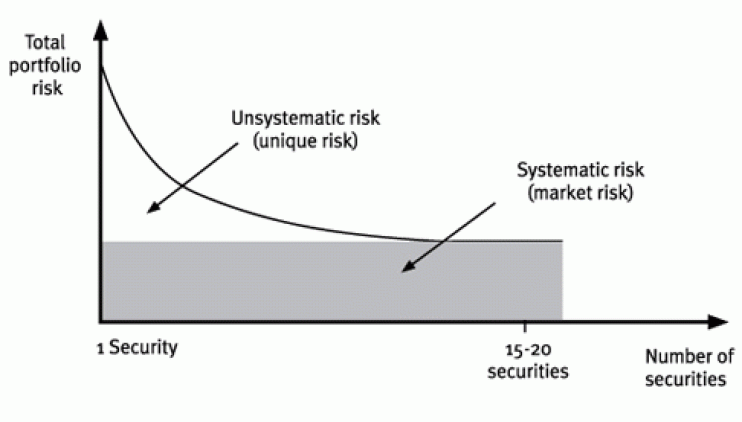
Management refers to the creation and maintenance of a company's status quo. It involves setting key performance indicators and identifying objectives, as well as monitoring performance to meet those goals. It involves setting high standards and focusing on quality, as well as identifying what works and what doesn’t. Ultimately, the goal of managing is to create a culture of quality and to keep the status quo. Here are some examples.
Managing
You can learn and develop the skills necessary to manage. Many courses and organizations offer this skill. The American Management Association (AMA) teaches both industry-specific and general management. The Project Management Institute is another non-profit organization that teaches skills and tasks required to manage projects. Management is all about solving problems and controlling them. It requires the ability and willingness to collaborate with others.
Leadership
Sometimes it can be difficult to distinguish between leadership and management. Management is the process of controlling individuals within a group. However, leadership is setting the direction of the group and driving the change. Leaders often use passion and charisma to influence others and achieve their goals. A leader is able to use his or her vision and energy to affect others. People are more likely to follow leaders because of their charisma and formal authority.

Coaching
Coaching is a key skill in business. More effective coaches will be those who know their employees well. They pay attention and learn about the history and backgrounds of their employees. They do not make assumptions about their motivations but rather learn about their personal backgrounds. Managers who coach employees should be careful not to impress them with their own knowledge. Their satisfaction comes from watching their employees grow and improve. If you want to make your management style more effective, start by implementing the principles of coaching.
Efficacy
Management effectiveness is the ability or capability to achieve the desired results in the fastest time. It is simply the ratio between output and input in a system. Eficacy in the health sector refers to the ability for a health intervention produce the desired effect. It can be determined using two methods: strategic efficacy (tactical efficacy) and strategic efficacy (strategic efficacy). The latter determines the effectiveness of an intervention to produce the desired effect in everyday practice.
Leadership development
Effective leadership development builds the capacity of leaders to make better decisions and improve the bottom line. It can increase revenues and lower costs, increase employee engagement, and close the talent pipeline gap. Companies that invest into leadership development experience lower turnover rates, higher stock market returns, and lower stock market losses. This also helps senior managers stay focused on their vision. Leaders need to know how to motivate their staff members and inspire them to be their best.
Development
Developing when managing involves a range of formal and informal activities that improve management skills and help to improve the performance of both managers and employees. Effective management is essential to both economic success and business success. While 40% of organizations make it a priority, developing managers is an important part of a company’s learning and development strategy. Here are some examples to help managers develop. They may include mentoring, role-play, team-building exercises, and training.

Self-study questions for managers
Managers must be able to look at and analyze their work. This is vital for your success. A good manager will always explore different approaches and find a better way to do things. This book will not be for those looking to get quick fixes. This book has self-study questions to help managers get started. These questions will help you gain an understanding of the pressures managers face in their job.
FAQ
What role does a manager have in a company's success?
There are many roles that a manager can play in different industries.
A manager is generally responsible for overseeing the day to day operations of a company.
He/she makes sure that the company meets its financial obligations, and that it produces goods or services that customers desire.
He/she makes sure that employees adhere to the rules and regulations as well as quality standards.
He/she plans new products and services and oversees marketing campaigns.
What are the key management skills?
Management skills are essential for any business owner, whether they're running a small local store or an international corporation. They include the ability to manage people, finances, resources, time, and space, as well as other factors.
These skills are necessary for setting goals and objectives as well as planning strategies, leading groups, motivating employees and solving problems.
As you can see, there's no end to the list of managerial duties!
What's the difference between leadership & management?
Leadership is all about influencing others. Management is all about controlling others.
A leader inspires followers while a manager directs workers.
A leader motivates people to achieve success; a manager keeps workers on task.
A leader develops people; a manager manages people.
What is TQM exactly?
The industrial revolution saw the realization that prices alone were not sufficient to sustain manufacturing companies. This led to the birth of quality. They had to improve efficiency and quality if they were to remain competitive.
Management responded to the need to improve, and developed Total Quality Management (TQM). This focused on improving every aspect of an organization’s performance. It involved continuous improvement, employee participation, and customer satisfaction.
Six Sigma is so popular.
Six Sigma can be implemented quickly and produce impressive results. It can also be used to help companies identify and focus on the most important aspects of their business.
How do we create a company culture that is productive?
A successful company culture is one that makes people feel valued and respected.
It's based on three main principles:
-
Everyone has something valuable to contribute
-
People are treated with respect
-
Individuals and groups can have mutual respect
These values are reflected in the way people behave. They will treat others with respect and kindness.
They will respect the opinions of others.
And they will encourage others to share ideas and feelings.
In addition, the company culture encourages open communication and collaboration.
People feel safe to voice their opinions without fear of reprisal.
They understand that mistakes can be forgiven as long as they're dealt with honestly.
The company culture promotes honesty, integrity, and fairness.
Everyone understands that the truth is always best.
Everyone recognizes that rules and regulations are important to follow.
Everyone does not expect to receive special treatment.
Statistics
- Hire the top business lawyers and save up to 60% on legal fees (upcounsel.com)
- 100% of the courses are offered online, and no campus visits are required — a big time-saver for you. (online.uc.edu)
- The BLS says that financial services jobs like banking are expected to grow 4% by 2030, about as fast as the national average. (wgu.edu)
- Your choice in Step 5 may very likely be the same or similar to the alternative you placed at the top of your list at the end of Step 4. (umassd.edu)
- This field is expected to grow about 7% by 2028, a bit faster than the national average for job growth. (wgu.edu)
External Links
How To
How can you use the Kaizen method?
Kaizen means continuous improvement. This Japanese term refers to the Japanese philosophy of continuous improvement that emphasizes incremental improvements and constant improvement. This is a collaborative process in which people work together to improve their processes continually.
Kaizen, a Lean Manufacturing method, is one of its most powerful. This concept requires employees to identify and solve problems during manufacturing before they become major issues. This increases the quality of products and reduces the cost.
The main idea behind kaizen is to make every worker aware of what happens around him/her. It is important to correct any problems immediately if they are discovered. So, if someone notices a problem while working, he/she should report it to his/her manager.
When doing kaizen, there are some principles we must follow. The end product is always our starting point and we work toward the beginning. To improve our factory, for example, we need to fix the machines that produce the final product. Next, we fix the machines which produce components. Finally, we repair the workers who are directly involved with these machines.
This approach is called 'kaizen' because it focuses on improving everything steps by step. Once the factory is fixed, we return to the original site and work our way back until we get there.
Before you can implement kaizen into your business, it is necessary to learn how to measure its effectiveness. There are many ways you can determine if kaizen has been implemented well. One way is to examine the amount of defects on the final products. Another way is determining how much productivity increased after implementing kaizen.
If you want to find out if your kaizen is actually working, ask yourself why. Is it because the law required it or because you want to save money. Did you really believe it would lead to success?
Let's say you answered yes or all of these questions. Congratulations! You are ready to start kaizen.